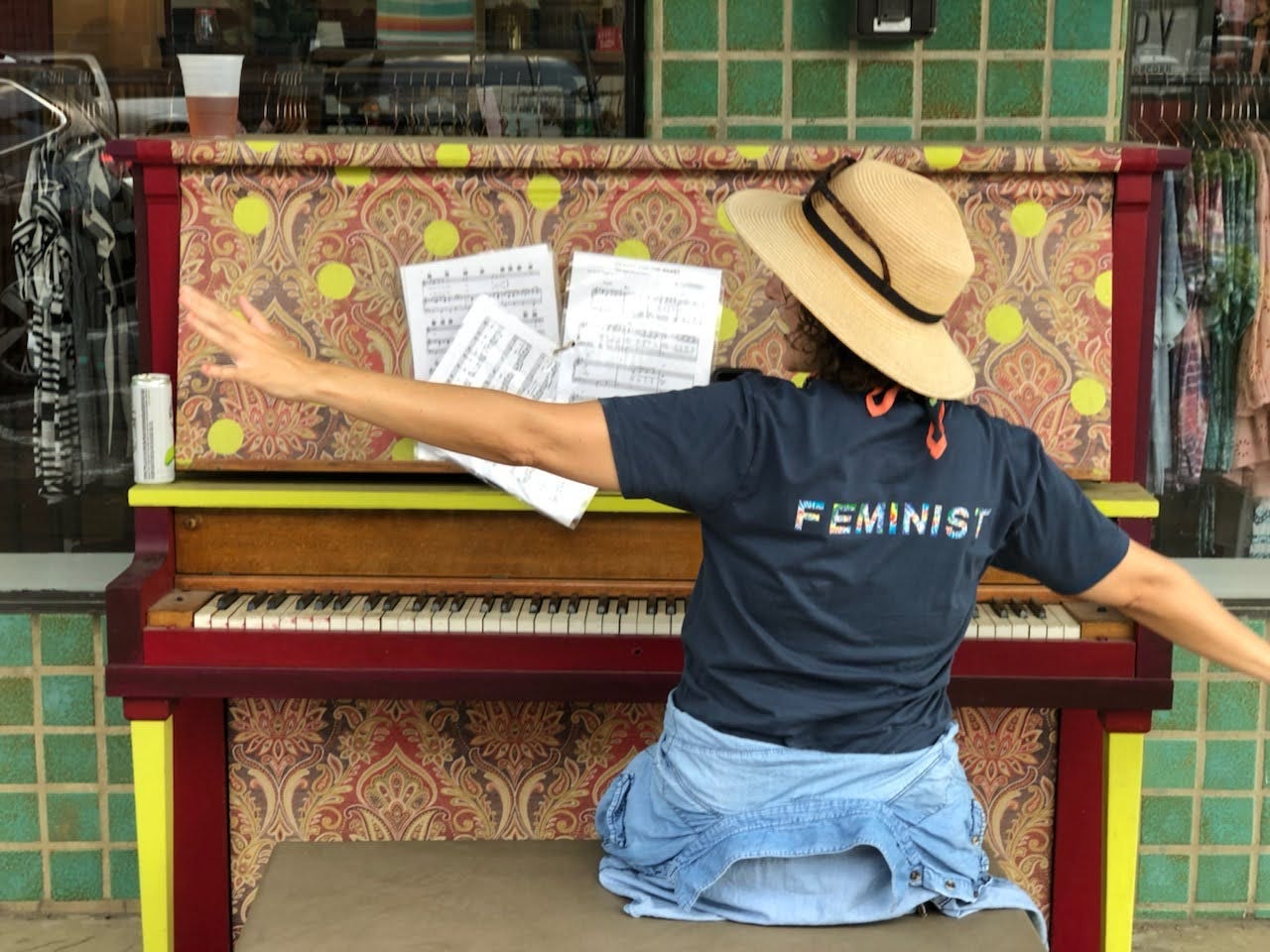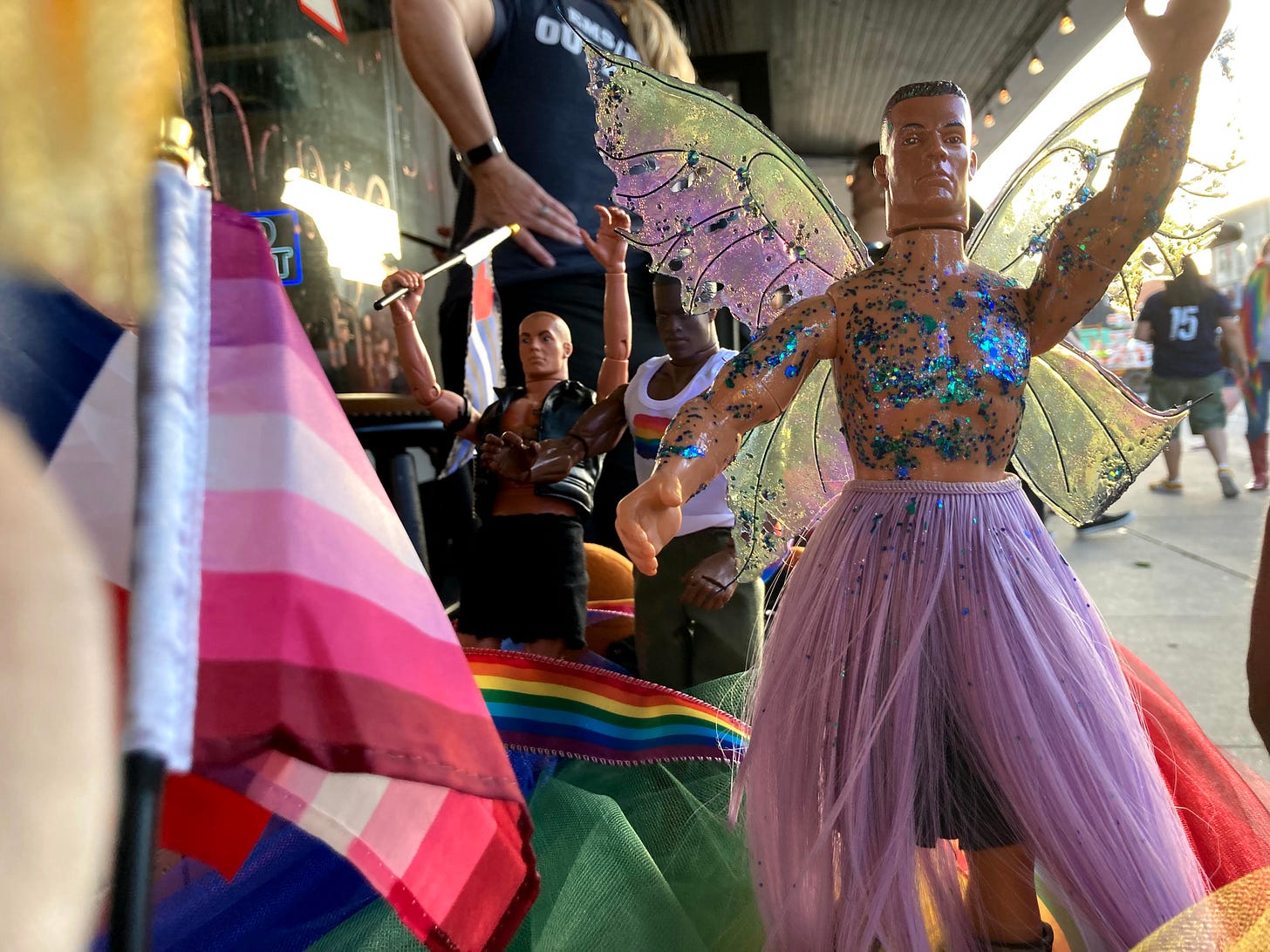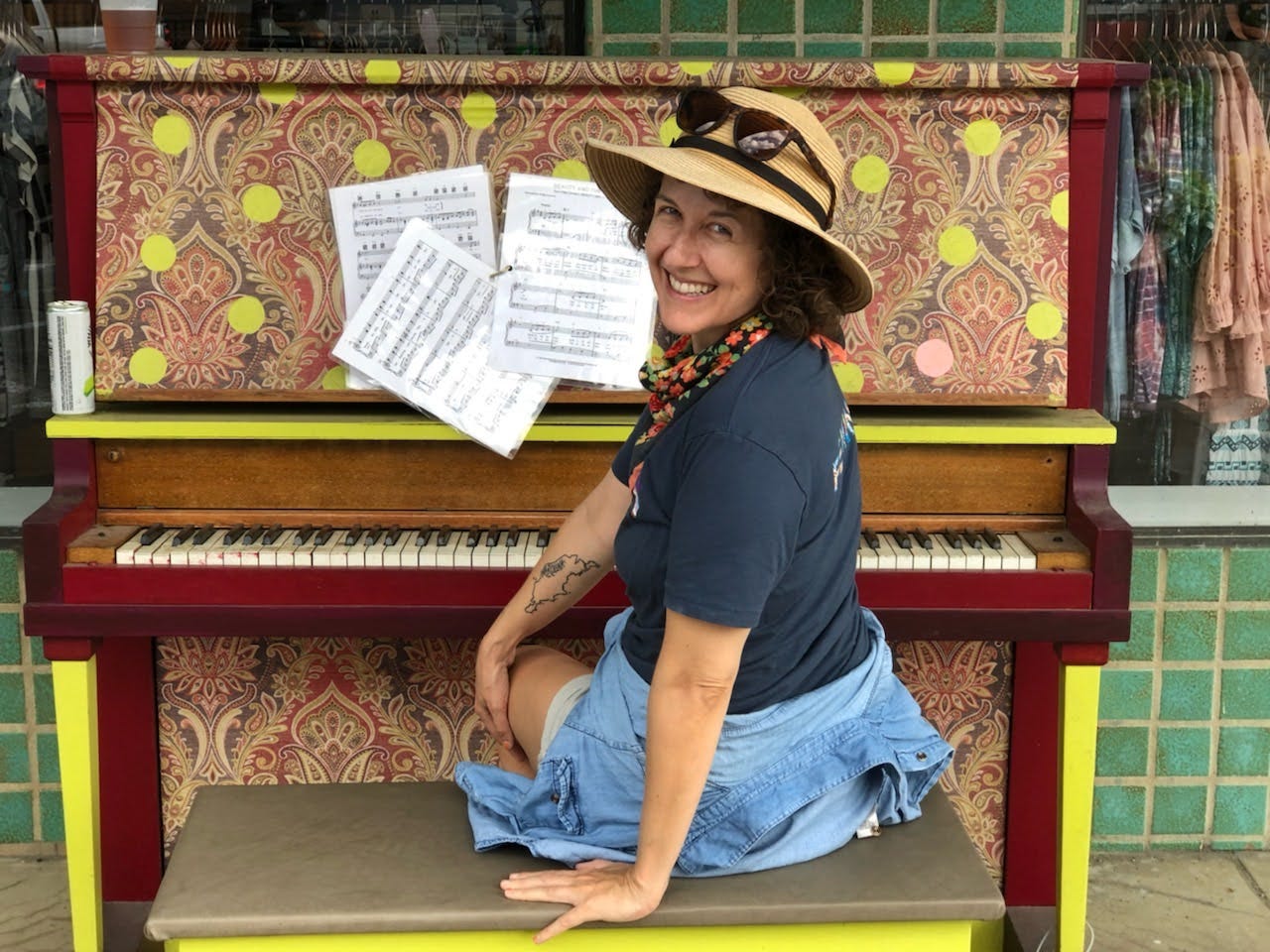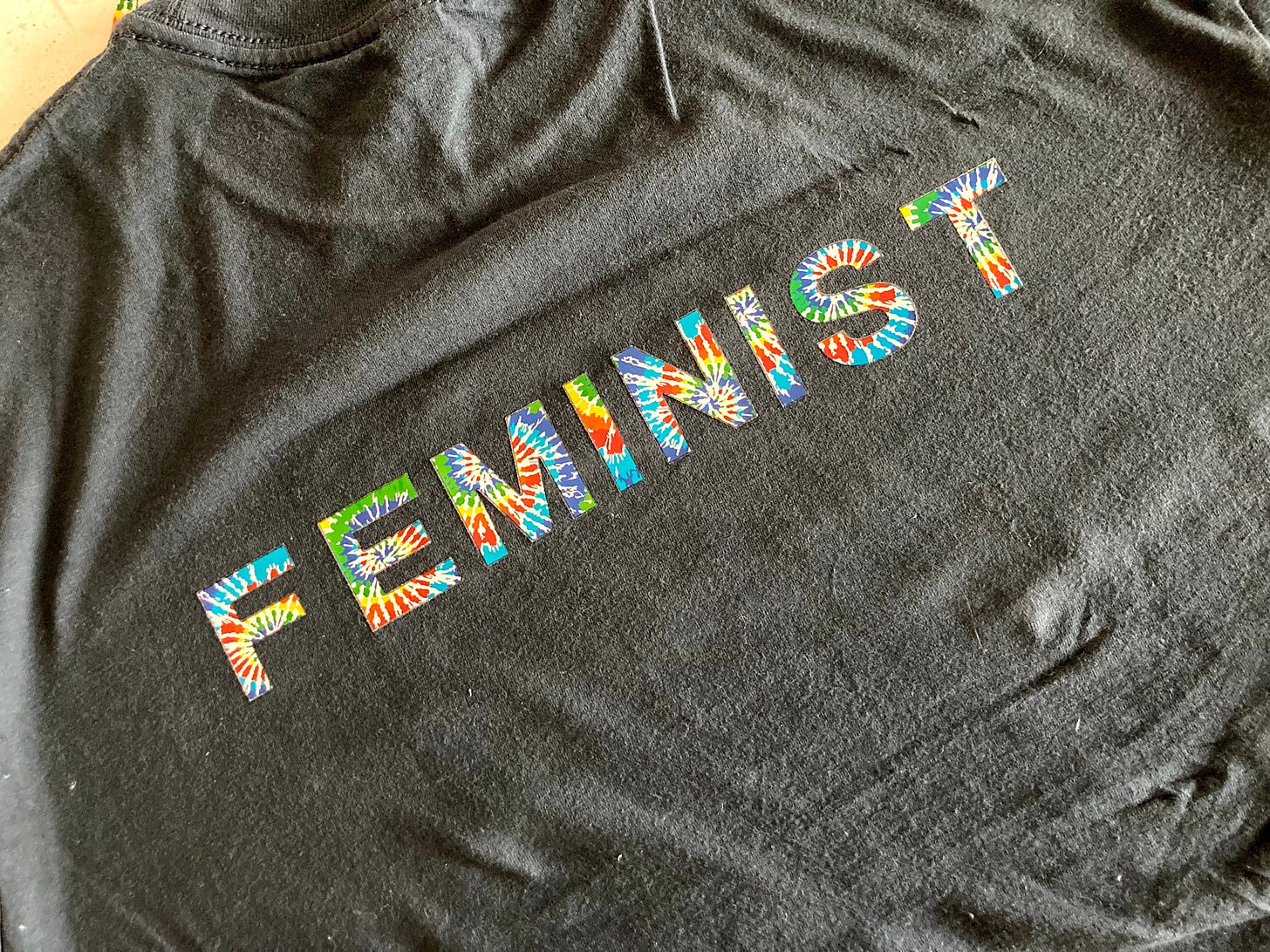Small town, big Pride
Taylor hosted the first Pride celebration in the history of Williamson County last month. I wouldn't have missed it for anything.
I went to my first Pride celebration last month, and it happened to be in Taylor, a small town outside of Austin.
I had traveled to Taylor in May for an upcoming travel story for Austin Monthly, and one of the first things I noticed at the Old Taylor High, where I was having a beer and reading a book “on assignment” (I love freelancing), was the Taylor Pride shirts that several people were wearing.
The shirts featured a rainbow of ducks, the town’s mascot. I complimented one of the people who was wearing the shirt, and she introduced herself as Denise Rodgers, the founder of Taylor Pride, a community group that launched during the pandemic.

They were hosting an informal gathering later that day at the Loose Screw — a bar inside the old high school (seriously, this place is so cool) — but the big event, she told me, was the city’s first Pride celebration happening later in the month.
“You should come,” she said.
Something clicked in my brain and heart at that moment.
Pride. In Taylor. A town not unlike my conservative hometown in Southwest Missouri. I’ve got to go.
A few weeks later, I was rolling into town with my friend Dani, me wearing my own Taylor Pride shirt and Dani showing off a set of shiny butterfly wings.
Having grown up in a small town, I know what a big deal it is that Taylor was hosting Pride.
In my hometown, it wasn’t exactly safe to be a person who was not straight. Gay slurs were common in my high school, and any hint of queerness was a quick way to strum up a lot of unwanted attention.
Not a lot of that has changed in the 20 years since I left Aurora; my mom, who still lives there, has some friends who are in same-sex relationships, but they aren’t exactly out in the community.
Taylor, with its proximity to Austin, has seen an influx of residents who have brought progressive cultural values with them. Some of them identify as LGBTQIA++. Others, as supporters.
During the pandemic, they created Taylor Pride to actively welcome and show their support for anyone who falls under queer/trans umbrella.
I could not have been more proud to join them for what turned out to be a fun-filled day on the last Saturday in June.
Along Main Street in downtown Taylor, hundreds of folks gathered at various businesses — from the Texas Beer Co. and Hola Aloha shave ice shop to the antique and boutique stores — to eat, drink, dance, meet new friends and generally show up.
It meant a whole heck of a lot to me to be able to show up with them.
You see, when I worked in traditional media, I couldn’t have bumper stickers or yard signs that showed any political affiliation. I wasn’t allowed to go to protests because at some point I might be covering them.
I never loved this part of my job, but I knew these were the rules that came with the profession.
But what about Pride? Is going to a Pride parade a form of protest?
Is announcing my support for trans and non-binary folks political?
Is becoming a wedding officiant so I can legally marry two of my female friends something that could get me in trouble at work?
A Pride parade or celebration shouldn’t be political, but because fighting for gay (and trans and Black and indigenous) rights is now seen as a political act, the event in Taylor a few weeks ago drew about a dozen protesters from local churches who decided to spend their day shouting shameful messages to the Pride attendees.
Standing between the protesters and the Pride attendees was the Parasol Patrol, a group of Pride supporters who travel around the country to various gay rights events so they can hold up rainbow umbrellas to create a sense of space between the people who are there to say “Love whoever you want” and those who say, “Love only as the God of my understanding tells me it’s OK to love.”
I was living in a small town when I first encountered anti-gay rhetoric coming from youth pastors, coaches and other people in positions of authority.
I was living in a small town when I first identified as a feminist.
I choose to live in a city now, where I can deepen my dedication to becoming an intersectional, anti-racist feminist.
It turns out, there are plenty of people who are living in small town America who are doing this work, too.
____________________________
A note from Addie:
Happy July, Substack friends!
I’m sending this week’s newsletter with so much gratitude to Denise Rogers and her crew at Taylor Pride for hosting this incredibly healing experience, which helped me work through some of my own wounds about not feeling like I belonged in a town like Taylor.
I hope other rural communities can see through the glitter and rainbows to recognize the spiritual, demographic, educational and economic growth that happens when we embrace folks and families that aren’t part of the straight, cis-gendered “norm.”
Speaking of small towns, I’m deep in production mode on “Class Reunion,” the podcast I’m making about my high school reunion.
Next week, I’m heading to Boise to see my sister and her family, so you’ll probably be reading about the hot springs we find when we get there.
I also have Substack posts in the works about a new book from an Austinite whose dad made NASA history but whose name you might not know, as well as a round-up of food books with a strong sense of place. (That piece is a special commission for my friend and former Austinite Mel Joulwan, whose podcast “Strong Sense of Place,” is a must-list for anyone who loves books and travel.)
And before I sign off: I made two donations at the end of June, one to Rooted in Melanin and another to Dobbin-Kauv Farm, two BIPOC-focused sustainable food organizations in Austin.
I also chipped into to Stephen Satterfield’s Indiegogo campaign for Whetstone magazine, which closes this weekend. He’s the brilliant host of “High on the Hog,” whose success on Netflix pushed Jessica B. Harris’ book on the bestseller for the first time, 10 years after it was published.
Thanks again for your support! Tell your friends and spread the word. I might have left the Statesman, but I’m not going anywhere.
Except Taylor. And Boise. And maybe a trip to Missouri to see my mom.
And you know I’ll be wearing this shirt when I go.











There’s hope for small towns every where! Good for Taylor, Texas!